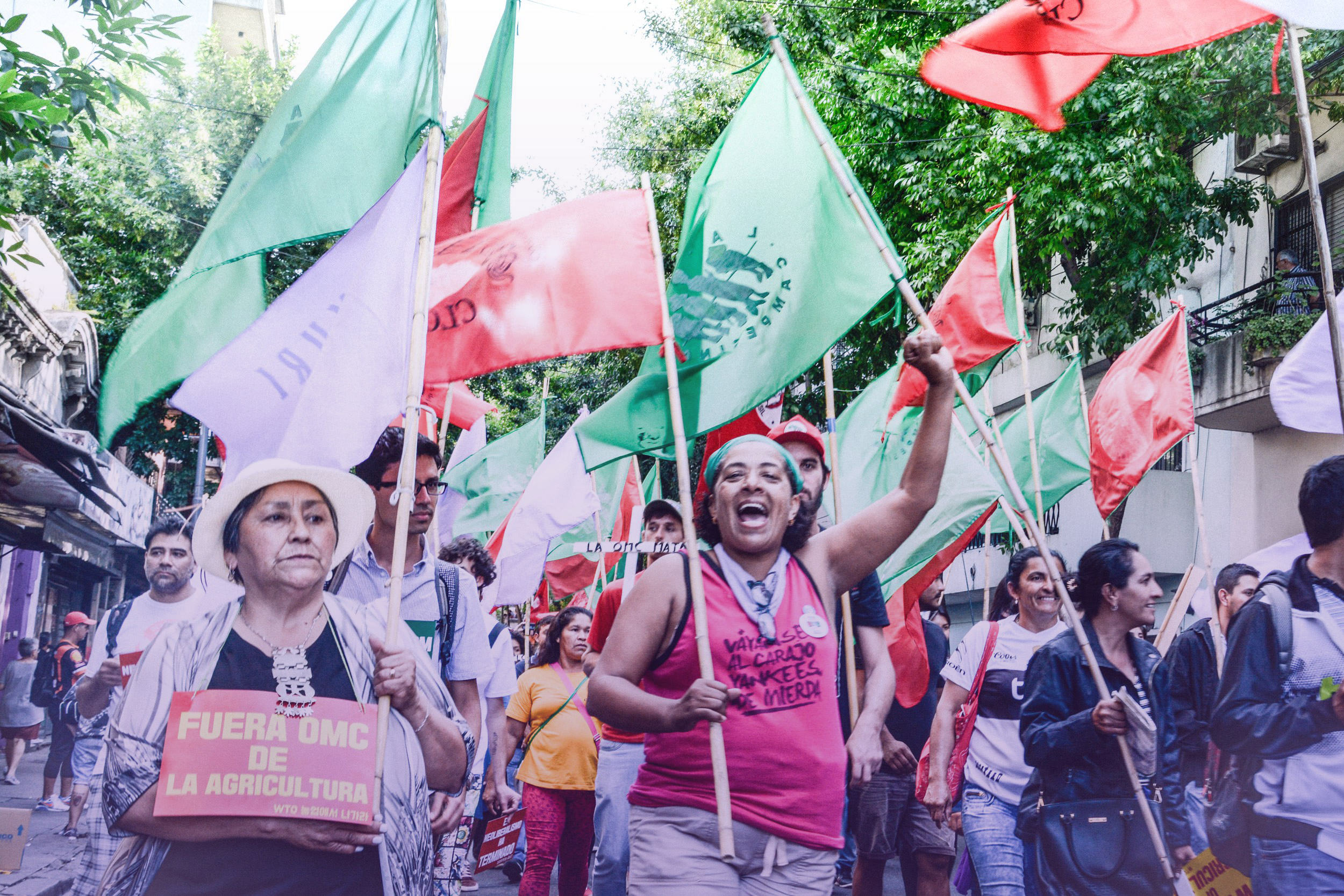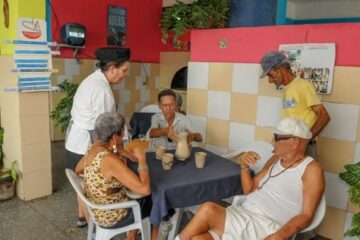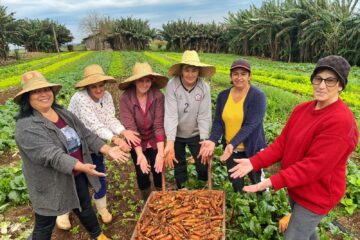“We are women who farm the land, we are fisherwomen, we are working women in the rural world. Our identity is the struggle for emancipation.”
From the women organizing in La Via Campesina, I would like to salute and thank you for this opportunity to discuss some ideas that may be interesting for the work conducted at a global level regarding popular peasant feminism and these major challenges that we are facing.
The process with which we are contributing is based on learning the meaning of grassroots, peasant feminism. As we grasp this meaning, we clearly see the history that we as women have been making in rural areas, particularly women in La Via Campesina. This is a way to be aware and able to give publicity to our way of thinking, our wisdom, the practices we follow in everyday life, our emotions. The pandemic is here and it has awakened our awareness of how important emotions are in our lives, especially in terms of the experiences we have in the territories. Bringing our way of thinking, our practices, emotions, and experiences to light helps us to renew our hope in our ability to build a better world.
We must be clear that so many women are building ways of being in the world, of having a relationship with life and with nature as well. For rural women, this relationship with nature and Mother Earth is fundamental. We play a major role in building food sovereignty through agroecology, which is a substantial tool for life, because our work is based on fostering harmony with Mother Earth.
Popular peasant feminism is a proposition that we have been building within our organizations, from the bottom, to change this reality of inequality in which we live. This way, we build and create vital communication with the sense of life and the sense of our environment. As women, we are aware of how we are in this world and how our environment directly affects us. Sophie Dowllar discussed earlier how the pandemic has been directly affecting women’s lives. There is a global situation that makes life more difficult for all human beings, and it makes it even harder for women.
Another important aspect is the identity of rural women. We have discussed that there are a lot of programs and strategies that are virtually calling us by different names: “women entrepreneurs,” women according to other aspects that are not our identity as rural women. We are women who farm the land, we are fisherwomen, we are working women in the rural world. We claim that our identity is also the struggle for emancipation.
In La Via Campesina, we are making the difference as we comprehend our history and realize how it contributes to changing the reality of women in rural areas. Just bear in mind that many of the women in La Via Campesina participate in political life with mixed-gender organizations, in which there are men and women. We face an enormous challenge to change power relations and we work tirelessly to change our reality, not only within the organizations, but also in our families as well as our social, political, and economic reality.
As women, we are also providing substantial contribution to life, and this is something that is often taken for granted. We are also working to fight violence, because in the rural world, day after day, violence escalates against women, to dominate and subjugate them. We must find methods for women to “acuerpar”[1] each other, to be able to change this reality. The struggle against capitalism makes a difference, because we know that capitalism and patriarchy work hand in hand to accumulate capital.
We must strive to break these capitalist forms and promote encounters with our culture, our worldview of Indigenous peoples. This is where our identity is also imprinted in the defense of the struggle for land, understanding land as an important resource to ensure food sovereignty and women’s lives, especially in terms of production.
Today, more than ever, food production is strategic. The rural world contributes greatly to fight the pandemic, because when there is production in rural areas, there is food. And this way, life is also ensured. We must underscore that feminism has been strategic in women’s lives and in the struggle for land and territory. Encroachment, spoliation, and hoarding of land has directly ravished women’s lives in the rural world. Peasant and grassroots feminism as a political bid by rural women becomes even more strategic in times like this, in which we have to find new ways of living, in the relationship with seeds, with biodiversity, with traditional medicine.
To tackle the pandemic, we are working steadily with traditional medicine in rural areas, where we know medical alternatives become more complex. This way, we contribute to defending land and our bodies.
Another important challenge from the perspective of popular peasant feminism is finding more collective ways to organize and operate. Our collective struggle is what finds ways to strengthen women’s struggle in general and in rural areas in particular. There is an old world to unmake and we also have a new world to build in our hands. We believe that alliances will give us the opportunity to build this new world.
In short, peasant, grassroots feminism as a political bid — based on the acknowledgment of our territories and on the restoration of our way of thinking, our wisdom, our ancestral knowledge — presents the challenge of achieving social justice and continuing the struggle against this unequal system. We have the opportunity to rebuild identities as mechanisms of resistance for the sustainability of life and buen vivir [good living]. We have a huge challenge, to keep changing gender inequality, but we also have the opportunity to build and rebuild this acuerpamiento between women to find true sorority, the most strategic solidarity right now.
Yolanda Áreas Blass is the coordinator of the women’s sector of the Association of Rural Workers of Nicaragua (ATC) and a member of the Latin-American Coordination of Peasant Organizations of La Via Campesina (CLOC-VC).
This is an edited version of Yolanda’s contribution during the World March of Women’s “Challenges of Grassroots Feminism” Webinar, held on February 23rd, 2021.
[1] Spanish word used to refer to mutual support—both personal and political—between women, coined especially within Indigenous community feminism.




